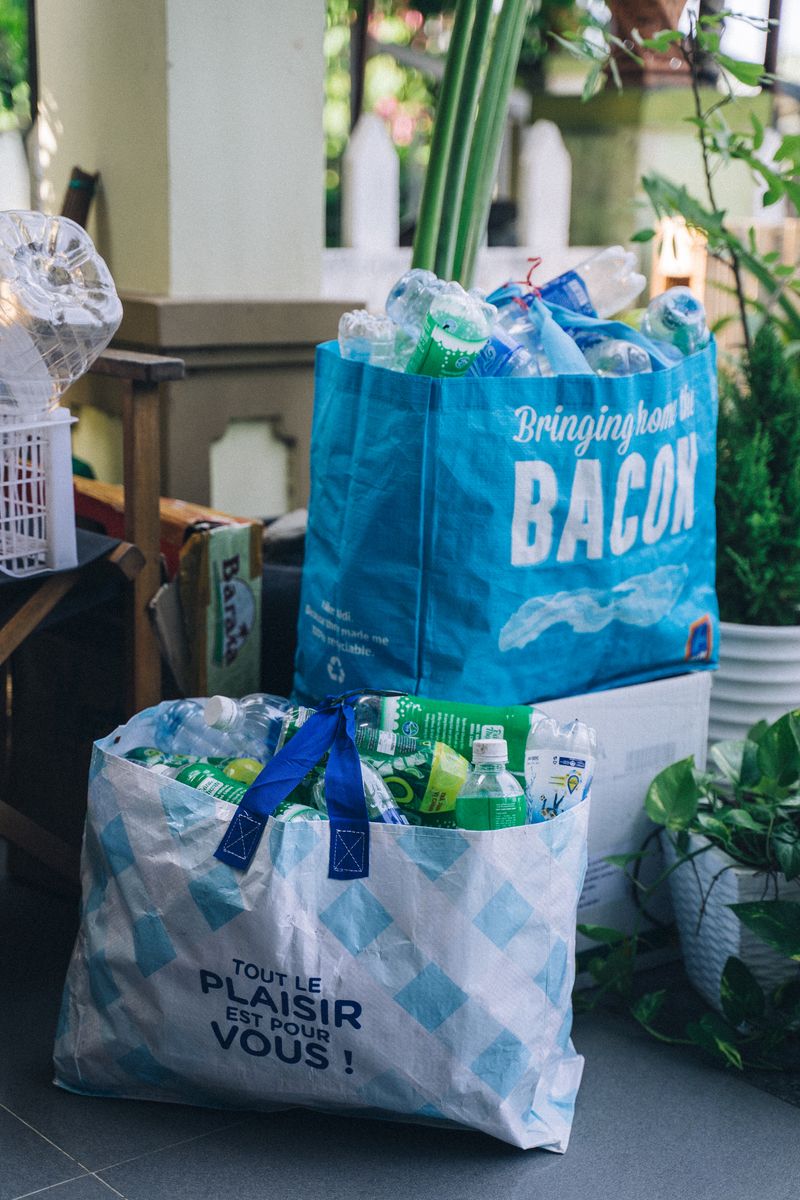To help recyclers find buyers for what would otherwise become waste, there is a need for better ways to verify that new laws are working. While companies can hire third-party certifiers to verify their use of recycled content, most certifiers take a bird’s-eye view, tracking the materials across a broad range of products and factories. As a result, an item with a “recycled content” label might not contain any recycled content at all. This current approach poses additional challenges for those seeking to verify recycled content. To work well, mass balance requires trustworthy and accurate data, which are not always available across a convoluted supply chain. Experts warn mass balance may also lead to inflated estimates of recycled content.
In the UK, researchers have developed a novel method to measure recycled content that adds fluorescent dyes to recycled plastics at the beginning of manufacturing. By measuring the change in color, the team can determine the amount of recycled content in each individual plastic product. Through the nonprofit ReCon2, the team is running pilot tests in real-world conditions and says this approach can prevent fraud, keep costs low, and improve consumer trust. The technique could show not only that everyone in the supply chain acted appropriately, but also that each bottle or package has the same amount of recycled content.
Many companies use mass balance, which considers all the inputs used to make a product. A manufacturer may then buy recycled material from a recycling company and newly extracted oil or gas. The mass balance will conclude the amount of recycled material in each product. However, under some certification schemes, a company can attribute its recycled material evenly across several plants, even those that have not acquired any recycled material. As a result, companies struggle to verify the source of material, and often they are left asking for data from previous owners, which can sometimes be inaccurate.
As the recycling industry develops, companies may make misleading claims about the amount of recycled content in their products. While recycled content has not received the same regulatory scrutiny as other claims like organic, it is imperative to be able to track materials through the recycling market in a way that makes sense. Recycled material can have lower quality, and too much of it in a product may threaten the product’s integrity. With the supply of recycled plastics limited in some areas, it’s helpful to allow companies to compensate by using extra recycled content in areas with plenty to buy. However, eventually, consumers should expect specific recycled content levels in each product.
As the industry progresses, establishing trust in measuring recycled content will require action from governments, as happened with organic labels. Governments can consider creating “recycled content measures” that establish clear guidelines for measuring and tracking recycled content. The Environmental Protection Agency may be moving in this direction, as it recently laid out a national recycling strategy that includes the creation of such measures. While mass balance will continue to be used as companies transition, innovation in this space is necessary. As Michael Shaver, a polymer science professor at the University of Manchester, states, “I think there’s a lot to be done in this space and a lot more innovation we can certainly do.”

<< photo by Anna Tarazevich >>
You might want to read !
- The Ripple Effect: Tracing The Journey Of Water From Source To Multi-Valued Resource
- “Saving the Great Pollinators: The Endangered Monarch Butterflies”
- “Shining a Light on Environmental Concerns: Earth Hour Returns”
- A Global Plastic Waste Crisis: Is a Unified Approach Attainable?
- Rethinking Recycling: A Call for a More Effective and Inclusive Recycling Program
- “How To Witness Botswana’s Historic Zebra Migration And Unveil The Mystery Of Their Secret Lives”
- Hyundai Construction Equipment Pledges to Combat Illegal Mining in Amazon Following Greenpeace Report